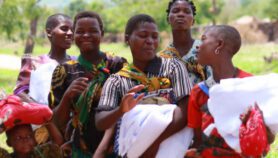Send to a friend
The details you provide on this page will not be used to send unsolicited email, and will not be sold to a 3rd party. See privacy policy.
The WHO must regain the trust of donors and the scientific community by becoming more transparent and transforming itself into the main source of global health knowledge, argues Barry R. Bloom.
Despite some great achievements in the 63 years since it was created, the organisation is increasingly "underfunded and marginalised", Bloom says.
And it has failed to lead on science or public health priorities — the organisation’s response to the recent outbreak of cholera in Haiti was slow, and, although chronic diseases are the main contributors to disease burden, its 2008–2009 funding still focuses on infectious diseases.
The proliferation of public health organisations — 196 agencies garnered funds for the cholera epidemic in Haiti, for example — also means that the WHO now operates in a more complex, fragmented and inefficient global health system that developing countries find cumbersome.
But this has created a demand for an authoritative provider of technical, scientific and practical information about public health, says Bloom, and the WHO could fill this gap with a few simple steps.
To succeed, it must engage more effectively with the pharmaceutical industry and civil-society organisations; become more transparent about its decisions and funding priorities, particularly for regional spending; and adopt a peer-review system to evaluate its plans and performance.
Bloom argues that the agency must focus on what it does well, such as "provide forums for experts, scientists and health officials worldwide to interact and agree on best practices". And it must make the results of these exchanges available online.
In this new leading role the WHO could also influence research and innovation priorities to ensure that they address developing countries’ concerns, he says. And it must strengthen its advisory role, securing funding for experts to evaluate future needs such as antibiotic resistance.













